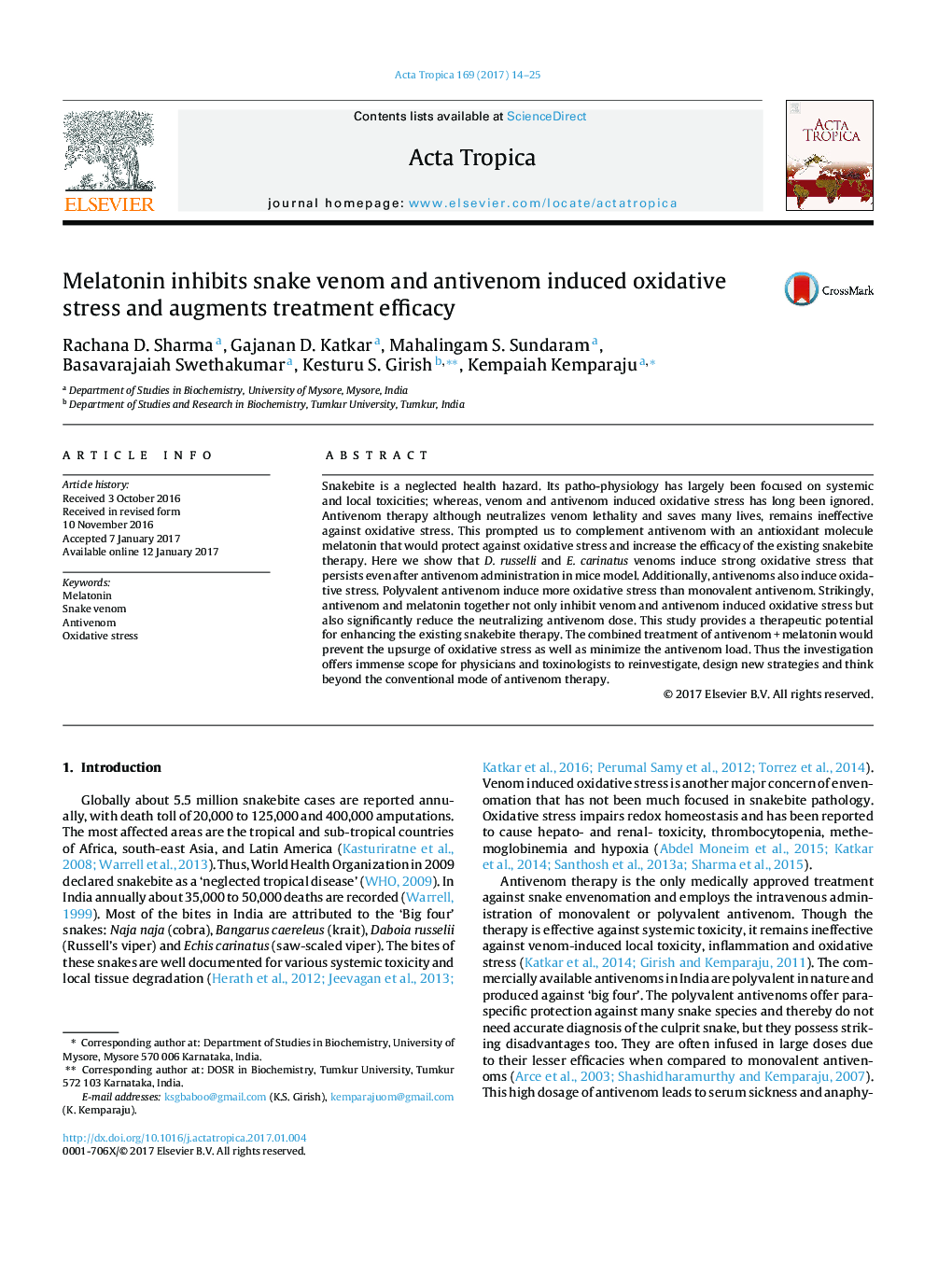| Article ID | Journal | Published Year | Pages | File Type |
|---|---|---|---|---|
| 5670855 | Acta Tropica | 2017 | 12 Pages |
Snakebite is a neglected health hazard. Its patho-physiology has largely been focused on systemic and local toxicities; whereas, venom and antivenom induced oxidative stress has long been ignored. Antivenom therapy although neutralizes venom lethality and saves many lives, remains ineffective against oxidative stress. This prompted us to complement antivenom with an antioxidant molecule melatonin that would protect against oxidative stress and increase the efficacy of the existing snakebite therapy. Here we show that D. russelli and E. carinatus venoms induce strong oxidative stress that persists even after antivenom administration in mice model. Additionally, antivenoms also induce oxidative stress. Polyvalent antivenom induce more oxidative stress than monovalent antivenom. Strikingly, antivenom and melatonin together not only inhibit venom and antivenom induced oxidative stress but also significantly reduce the neutralizing antivenom dose. This study provides a therapeutic potential for enhancing the existing snakebite therapy. The combined treatment of antivenom + melatonin would prevent the upsurge of oxidative stress as well as minimize the antivenom load. Thus the investigation offers immense scope for physicians and toxinologists to reinvestigate, design new strategies and think beyond the conventional mode of antivenom therapy.
